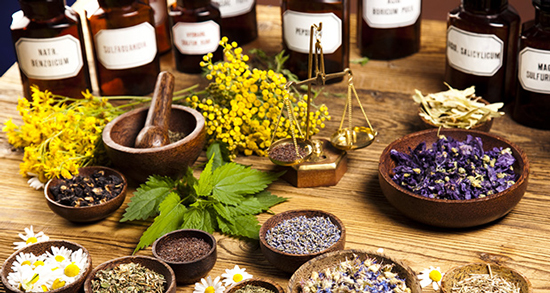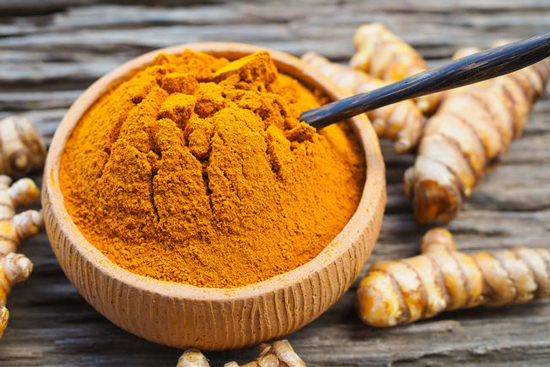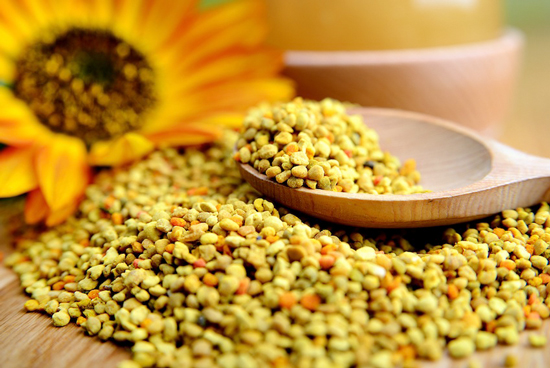Safe Natural Drug Alternatives For Most Prescribed Drugs

We are all slowly but certainly becoming pill poppers. In the last 12 years, the percentage of people taking five or more prescription drugs has almost doubled, from 8% to 15%. About 60% of American adults take at least one drug daily. That’s up from 51% just twelve years earlier. Big Pharma spends millions every year on marketing and advertising. The message is simple: that prescription drugs are the way to good health. But do you know that there are safe natural drug alternatives for 11 most-prescribed drugs?
Major drug companies, between 2004 and 2010, paid out $7 billion in penalties, lawsuits, and fines. But, for them, it’s just a drop in the bucket compared to their rising profits, which is more than $1 trillion a year.
11 Safe Natural Drug Alternatives
Here are safe natural drug alternatives for the top 11 most-prescribed medications.
1. Vicodin (hydrocodone/acetaminophen)
This highly addictive opioid painkiller has become a scourge. It is the number one selling drug in the U.S. Every day, more than 1,000 Americans are received for treatment in emergency rooms for overdoses from this prescription opioid. Rather than relying on a pill that may damage your liver and mask your aches, see a professional with a healing touch to try to tackle the trigger.
Whether you suffer from migraines, back issues, arthritis, or any other type of common pain, there are natural solutions that can bring you relief.
To ease joint or muscle pain, apply topically a capsaicin cream, made from the active ingredient in hot peppers.
Taken orally, the omega-3 fatty acids have a powerful anti-inflammatory effect, easing the swelling and pain associated with injuries and rheumatoid arthritis. The same way work and the common antioxidants, such as Pycnogenol and vitamin E.
Natural therapies can also help for migraine headaches. Long-term use of the herb feverfew inhibits blood vessel dilation and reduces the severity and frequency of migraines. Other studies have found that people who suffer from migraines are low in magnesium.
2. Synthroid (levothyroxine)
This drug is a synthetic version of the T4 thyroid hormone. If you take it, you have been diagnosed with hypothyroidism or an underactive thyroid.
This condition can be improved with vitamin D3. Take 2,000 IUs of vitamin D3 daily.
Check for mineral deficiencies. First, low thyroid problems may occur if your own immune system attacks your thyroid. But also mineral deficiencies such as iron, selenium or iodine can cause low thyroid problems. Talk to your doctor about taking natural thyroid glandular supplements.
Remember, always consult your doctor before you start or stop taking a medication.
3. Delasone, Sterapred (prednisone)
This corticosteroid is a powerful anti-inflammatory. It treats the symptoms of asthma, colitis, arthritis, and many other autoimmune conditions. The most important is that it rarely addresses the root causes of illnesses.
It is also linked to serious side effects. One of its most concerning side effects is mood disorders. It can cause anxiety, depression, mood swings, and insomnia. Long-term use is linked to weight gain, osteoporosis, and extreme fatigue.
Curcumin is one of the best natural anti-inflammatory substances. Take a 400-600 mg supplement once a day.

4. Prinivil, Zestril (lisinopril)
Lisinopril is an ACE inhibitor and it treats high blood pressure. One of its most common side effects is a chronic cough which can be so severe that patients can’t sleep.
But the most serious and troubling side effect is angioedema. It’s rapid swelling of the throat, airways, tongue, and face. It can be fatal.
A safer natural alternative is hibiscus macerate. It works similarly as lisinopril. In a study in 2015, it was tested head-to-head against lisinopril and it was found to work just as effective as lisinopril. You can drink hibiscus macerate 20 ounces a day.
Prescription drugs can be one solution for how to lower blood pressure, but with the right supplements, you may be able to cut back or even stop taking them.
Magnesium (200 mg a day) and potassium (500 mg a day – present in a cup of coconut water, tomato juice or a banana) are very effective at lowering blood pressure in most people.
Coenzyme Q10 is an antioxidant that might help lower blood pressure by dilating blood vessels. Talk to your doctor about taking 200 milligrams a day of Coenzyme Q10. Its deficiency is very common in people who take cholesterol-lowering medications.
5. Antibiotics such as Amoxil (amoxicillin)
This penicillin antibiotic is used to treat bacterial infections. The main problem is that doctors often prescribe antibiotics even when they aren’t sure if a patient has a bacterial disease.
This overuse has led to the increase of deadly antibiotic-resistant superbugs. Many of them are now almost untreatable.
Antibiotics also kill the “good” bacteria in your gut making you more vulnerable to other infections.
Probiotic tablets or capsules, containing beneficial bacteria, can restore intestinal bacteria destroyed by antibiotics. Actually, according to an article in the Journal of the American Medical Association, they might protect against many infections. They might also reduce the risk of gastrointestinal and vaginal infections.
Garlic is well known for its ability to increase resistance to infection and its antibacterial properties. You can use raw garlic or its supplemental form.
Goldenseal (Hydrastis canadensis) and echinacea (Echinacea spp.) also have very powerful antibiotic properties.
The grapefruit seed extract has powerful antibacterial properties.
Go for a nasal rinse. Many sinus infections are best treated with saline nasal rinses instead of antibiotics. Each rinsing simply washes away about 90% of the infection and makes it so much easier for your body to heal.

6. Xanax (Alprazolam)
According to the National Institute of Mental Health, statistically, women are 60% more likely to experience an anxiety disorder. First, try to understand what triggers your anxiety and what helps it. Keep a journal: Take 10 -15 minutes every day and write about your experiences. Include your anxious ones too.
First start by asking: What happened to me today? What caused anxious feelings?
Then note what was your reaction to those feelings.
Finish by writing down how you dealt with it and how it made you feel.
Journaling about your feelings, thoughts, and actions can help you become more aware. This is because you can look back at your entries, and easily identify your patterns of behaviour and triggers.
7. Zoloft (Sertraline)
National Institute of Mental Health also reports that women are 70% more likely to suffer from depression.
Omega-3 fatty acids are a powerful anti-depressant. So, eat omega-3 fatty acids rich food two or more times a week. If you are vegan you can get your omega-3s by eating flax or pumpkin seeds, leafy greens, and walnuts.
The herb St. John’s Wort may be the biggest rival to Zoloft and Prozac.
Evening primrose oil is rich in gamma-linolenic acid (GLA) which can correct brain chemistry.
Vitamin B1 can also stabilize and improve mood. One study found that low selenium levels can be associated with confusion and depression.
8. Ambien (Zolpidem tartrate)
A huge 60% of Americans say that they have a sleep problem. And if you take Ambien more than ten days it might create dependence which is yet another problem.
Try first with melatonin. It is a hormone naturally produced by the pineal gland but you can also get it over-the-counter.
9. Glucophage (Metformin)
Healthy diet and exercise can keep you from being on meds for life. If you are at risk of type 2 diabetes or if you’ve already been diagnosed, add physical activity into your life.
Actually, just one week of exercise may help the muscles of diabetics to better respond to insulin.
10. Benadryl (Diphenhydramine), and Sudafed (Pseudoephedrine)
These drugs are commonly used to treat allergic rhinitis, the thick-headed feeling and sneezing you get when you’re hypersensitive to pollens and/or other allergens.
Take high doses of Vitamin C.
Antioxidant flavonoids such as quercetin and Pycnogenol are very beneficial. Also, they are natural antihistamines, but they won’t make you groggy. Quercetin has the ability to inhibit the activity of cells that release histamine, which causes allergic symptoms.
The herb feverfew is rich in flavonoids, that might also relieve allergies.
Bee pollen can also be a remedy for allergies. To avoid a negative reaction it is recommended to consume one granule of pollen daily and slowly up the dose.

11. Omeprazole (Prilosec)
The number of prescriptions written for Prilosec makes it the third most popular drug.
Heartburn occurs when excess stomach acid backs up into the esophagus, but its real cause can be a food sensitivity or allergy. When people take antacids they block the protective hydrochloric acid in their stomach, which can lead to mineral deficiencies by hindering their absorption and bacterial overgrowth in the small intestines.
You can eliminate heartburn by eating fewer “fast” or processed microwavable foods, with a lot of suspect additives, and taking the time to enjoy your meal and de-stress.
Also, take small doses of “buffered” vitamin C, which will temporarily lower your stomach acidity.
Several studies have shown that rich in antioxidants licorice root (Glycyrrhiza glabra) can relieve heartburn.
Simple lifestyle changes, such as eating slowly, clearing of your trigger foods, and managing stress can make a big difference.
yogaesoteric
December 16, 2018
